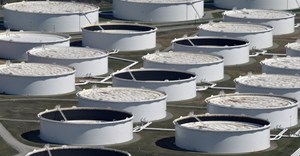Trending
Elections 2024
Jobs
- Introduction to Investment Products Specialist Johannesburg
Saudi oil attacks and the effect on SA's economy

Consequently, any direct impact on Iran will have a contained effect on SA given the country’s limited exposure to Iran in terms of both imports and exports of goods and services. SA’s heavily reliance on Saudi Arabian oil imports could however negatively affect the price of fuel in SA, given the significant dent to Saudi’s oil supplies following the attack.
A rise in geopolitical risks could similarly see the international price of oil picking up and emerging market currencies selling off as risk appetite abates. Both a weaker rand-dollar exchange rate and a higher international price of oil could feed through quite quickly into the inflation basket given the relatively quick pass-through into SA transport prices. Fortunately, demand pull inflationary pressures and the currency pass-through in SA has proven to be limited in recent months suggesting, inflation is likely to stay within the target band and should thus not force the Reserve Bank’s hand to hike interest rates in a weak growth environment, all else equal.

















